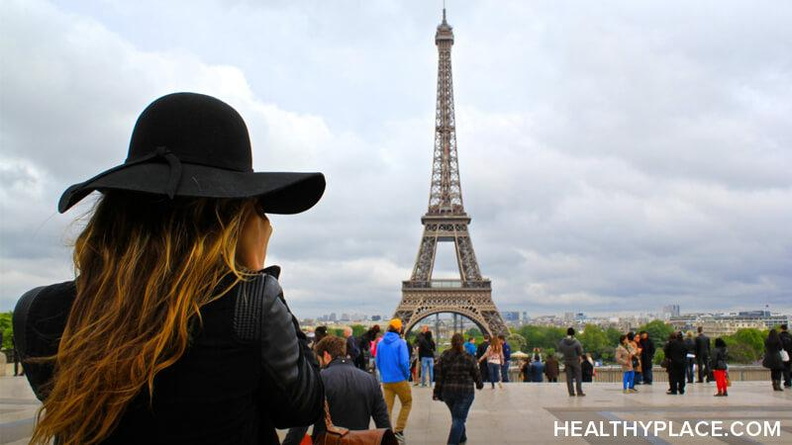Studying Abroad with Bipolar Disorder

I have bipolar disorder, and I have studied abroad. From the moment I enrolled in my first college classes, I eagerly searched for opportunities to study abroad, unaware of the impact my oncoming diagnosis would have on my plans. Here's how bipolar disorder affects studying abroad.
Bipolar Mania Prevented Me from Studying Abroad
By my second semester, I planned to take summer courses in Italy. However, between my initial plans and the required paperwork, I experienced two manic episodes and received a bipolar diagnosis. When I filled out my study abroad application, I noted my disability and listed bipolar disorder type I. My application was accepted with one stipulation: I needed a psychiatrist's approval to study abroad.
When I brought the request to my psychiatrist, I was devastated to learn I would not receive approval to study abroad because of my bipolar disorder. The program was set too soon after I had endured two hospitalizations back to back. My psychiatrist was concerned that I was not ready for this step, fearing that a manic episode abroad could be dangerous, given the lack of support I had in that country. Although this news disheartened me, it motivated me to focus on stabilizing my condition.
Steps I Took to Study Abroad with Bipolar Disorder
A year later, the opportunity to study abroad in France arose. The program better suited me, as I studied French for five years. Once again, I listed bipolar disorder as a disability and required a note from my psychiatrist for approval. This time, however, I had more stability in my track record. I was delighted to be approved to study abroad despite bipolar disorder.
Before departing for France, I ensured that my psychiatrist was able to prescribe two months of medication for the trip that I could pick up before leaving. I also requested a note for use at the airport in case of any issues. The school I attended in France offered optional counseling sessions with a therapist who, though native to France, was fluent in English. I met with her weekly during my six-week stay.
It was enlightening to engage in counseling with someone who grew up in a different culture. Something that I will never forget is her perspective on sensitivity. I always saw my sensitivity as a weakness, but she helped me to realize it was a gift that the greatest artists were given. Sensitivity seemed to be valued in a different way in French culture.
Rediscovering My Independence When Studying Abroad with Bipolar Disorder
Socially, I struggled during my time in France. I felt isolated from others because of my extreme experiences with my mental health. As a result, I spent a lot of time alone. I picked up a sketchbook and some colored pencils, then spent a lot of time at cafes drawing the different European environments. I studied photography and graffiti in the area as well. Thanks to therapy and these creative outlets, I rediscovered a love for art that was lost in my worst episodes. I also learned how to enjoy time with just myself again and discovered a love for solo travel.
Although my initial attempt to study abroad was interrupted by my bipolar disorder, I still made my way there in the end. With medication and therapy, the program was a success, and the French culture reinvigorated parts of myself that I felt I had lost.
APA Reference
Waters, K.
(2024, August 12). Studying Abroad with Bipolar Disorder, HealthyPlace. Retrieved
on 2026, March 3 from https://www.healthyplace.com/blogs/bipolarvida/2024/8/studying-abroad-with-bipolar-disorder
